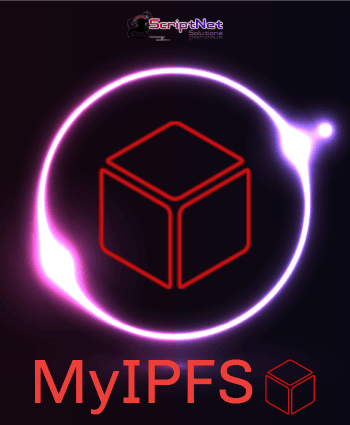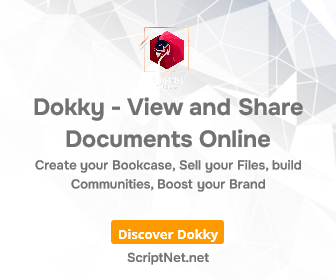For nearly 25 years, virtually as long as online payments have been possible, David Marcus has been trying to figure out how to perfect them . In the mid-’90s he founded a telecom company that offered internet access along with telephone service. In 2000, he launched Echovox, which he spun out into Zong in 2008 — a mobile platform that let users pay for things online directly through their mobile phone bills. When this venture was acquired by PayPal in 2011, Marcus joined the digital payments giant, becoming its president the next year. He’d read the Bitcoin white paper shortly after it was published, but “didn’t fall into the rabbit hole” at first, he recalled in an interview with Bitcoin Magazine. Then, in 2012, Argentina ordered PayPal to stop all transactions that would send money out of the country as it grappled with currency inflation and a fiscal austerity effort , and the real value of this peer-to-peer electronic cash system started to resonate with him. “We had to (comply), we were a regulated entity,” Marcus explained. “The day that happened, bitcoin prices went up significantly and I was like, ‘Whoa.’ Like, this is something where consumers in a place like Argentina are actually rushing into bitcoin as a way to move money that they’ve earned — it’s their money — in a way that they saw fit. So, I felt that was a very eye-opening moment for me in terms of Bitcoin being an escape valve to certain behaviors that weren’t aligned with my views of self sovereignty, of money … so that was kind of a turning point for me in 2013, where it really solidified my conviction.” Shortly afterward, in May 2013, he attended the Bitcoin 2013 conference in San Jose and, despite its relatively small community, he was intrigued by the breakthrough Bitcoin had made in how digital payments could be facilitated. “It was really a handful, like two handfuls of people basically, it was so incredibly early,” he said. “I was fascinated by this general idea that you move value in a completely self-sovereign way without any intermediaries whatsoever. And during that same time period, I remember sending and receiving bitcoins, and I was setting up wallets for friends to show them what was possible: ‘Look, this is me sending you money and there’s no one in between, right?’ And I was really fascinated by it.” To The Best Of Our Abilities But Marcus was not yet ready to give up on the possibility of institutionalized yet open payments for the internet. In June 2014, he joined Meta (then Facebook) as its vice president of messaging products, developing the Facebook Messenger mobile app. Marcus released Messenger P2P Payments in 2015, which allowed users to send each other money from their synced checking accounts via the app. By mid-2019, Marcus had begun leading Facebook’s cryptocurrency project, Libra, which was later renamed Diem before being abandoned altogether. Libra was almost instantly dismissed by Bitcoiners as offering nothing particularly valuable compared to other centralized digital currency projects. And Marcus found himself defending the project before the House Financial Services Committee as well as the U.S. Senate’s banking committee , forced to answer questions that were often more broadly focused on Meta’s history of invading user privacy. But before Libra settled on the permissioned, oligarchical node model outlined in its white paper , Marcus had actually considered leveraging the Lightning Network for his project. “I remember meeting with Elizabeth Stark (CEO of Lightning Network development firm Lightning Labs) in early 2018 and trying to figure out whether Lightning was actually the way to go, because if there was a way to actually use Bitcoin, I really wanted to do that,” Marcus said. “At the time, we thought, OK, maybe we can use Lightning and then build a world-class wallet that we can embed across all of the Meta products, WhatsApp and Messenger and others, and then enable people to move value around.” Ultimately, he decided the protocol wasn’t robust enough to fulfill Meta’s vision due to some of the insufficiencies that it has yet to overcome, including limited nodes and liquidity. “Even today, it would be challenging, and it will be challenging, to actually get to billions of consumers on the Lightning Network,” Marcus pointed out. “Even Layer 1 won’t have enough HTLCs ( hash time locked contracts ) to actually do that. So, we’ll have to find solutions as we get there. But our view was that it won’t scale… And as such, we came to the conclusion that we need to go build this proprietary technology that we will then do whatever we can to decentralize to the best of our abilities.” In the end, Marcus’ ability to decentralize a payments project under Meta proved insufficient and he has since come to the realization that attempting to do so on any other network aside from Bitcoin is an exercise in futility. “We’ve built the unshakeable conviction at this point that the only blockchain and the only underlying assets that can support a truly open protocol for payments on the internet is Bitcoin and nothing else,” he said. In 2021, Marcus left Meta and the next year he launched Lightspark to pursue that conviction. The Reason Bitcoin And Lightning Are Better Lightspark builds software and development tools meant to make accessing the Lightning Network easier, such as its software development kit to help businesses offer Lightning wallets to their customers and Lightspark Predict , which identifies the best-performing Lightning nodes and can route transactions to them. Rather than building a centralized platform to enable digital payments, Lightspark is focused on building tools to help customers access this existing, decentralized one. And while Lightning Network adoption is still far from rivaling the user base of something like PayPal, Marcus is optimistic about its potential to scale if companies like his are successful. “Lightning still has issues, but I feel very confident that we’re in a position to address these issues,” he said. “You’ll see that for companies to integrate on Lightning using Lightspark services, you don’t even need to worry about channels. You don’t need to worry about liquidity. You don’t need to worry about channel rebalancing and distributing liquidity. You don’t need to worry about what routes you’re going to use and which minimum fee or maximum fee you’re going to set. All of that complexity is being completely taken away from the equation of a company deciding whether they’re going to implement Lightning for their consumers or not.” When asked if abstracting users so far away from managing their own liquidity, channel balances and routing could in a sense recreate the issues with centralized, trusted financial middlemen, Marcus responded with an analogy. “In the early days of the web, if you wanted a website and you wanted to be on the internet, you had to go build your own server, find a rack, put it in a rack, buy a router, configure your router, get an E1 or a T1 line, plug that router into your E1 or T1 line and then maintain that whole thing all the time, and it was like, OK, no one does that,” he explained. “But the reason Lightning and Bitcoin are better is because there are companies like Lightspark that will make things easier for mass market adoption, but if you are in a random country anywhere, and you just have internet connectivity, you can run a node on your phone yourself and be a participant in this network. And I think that’s what makes it amazing.” And he went further to underscore that his intention now is to enable a certain kind of Lightning adoption, rather than roll out a solution that minimizes the need for independent participants. “We don’t expect everyone to use our software,” he continued. “That would actually be a bad thing, right? We think that everyone should run their own thing and we’re going to cater to a certain segment of the market that is going to tend to be larger, enterprise-types of customers.” Of all the executives actively working on Bitcoin projects, Marcus probably has the most legacy experience to inform him on what Bitcoin needs to succeed as well as what it must avoid in order not to fail. And, declaring that building on Lightning is the culmination of his life’s work, he’s determined to succeed.
 License.
License.


















